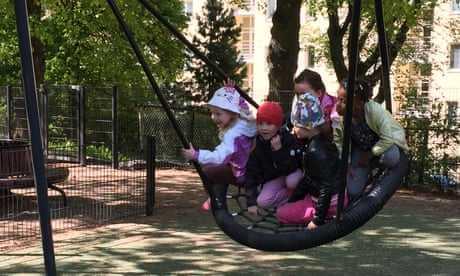Learn more about parenting with this collection
Cultivating a growth mindset and embracing challenges
Developing adaptive thinking and problem-solving skills
Effective learning frameworks and approaches
Children of the future
In the future, if you want a job, you should be unlike a machine - creative, critical, and socially skilled.
Yet children are still taught to behave like machines. While children learn best when teaching supports their energy and curiosity, they are conditioned to sit still in rows while they are filled with facts. While adults succeed through collaboration, collaboration in tests and exams are called cheating.
1
3 reads
Schools were designed for the 19th-century
Our schools were designed to produce 19th-century factory workers - workers who would sit quietly at their benches all day, working identically, producing identical products.
Schools teach skills that are redundant and counter-productive. Teachers are leaving, their careers destroyed by overwork and a spirit-crushing administration of standardisation and testing. The less autonomy they have, the more the failures of the system are blamed on them.
1
1 read
Children love learning
They learn to walk, talk, eat and play naturally by watching and experimenting.
There is no single system for teaching children well. The best ones open up rich and diverse worlds that children can explore in their own ways, igniting their curiosity and developing their interests with assistance.
1
1 read
Teaching programmes designed to work with children
- The Mantle of the Expert encourages children to form teams of inquiry, solving imaginary tasks beyond traditional subject boundaries, such as rescuing people from disaster.
- The Quest to Learn is based on the way children teach themselves to play games. To solve complex tasks, they need to obtain information and skills.
- The Reggio Emilia approach allows children to develop their own curriculum based on their interests.
- Ashoka Changemaker schools treat empathy as a foundational skill for fluid collaboration.
1
2 reads
CURATED BY
More like this
Read & Learn
20x Faster
without
deepstash
with
deepstash
with
deepstash
Access to 200,000+ ideas
—
Access to the mobile app
—
Unlimited idea saving & library
—
—
Unlimited history
—
—
Unlimited listening to ideas
—
—
Downloading & offline access
—
—
Personalized recommendations
—
—
Supercharge your mind with one idea per day
Enter your email and spend 1 minute every day to learn something new.
I agree to receive email updates


